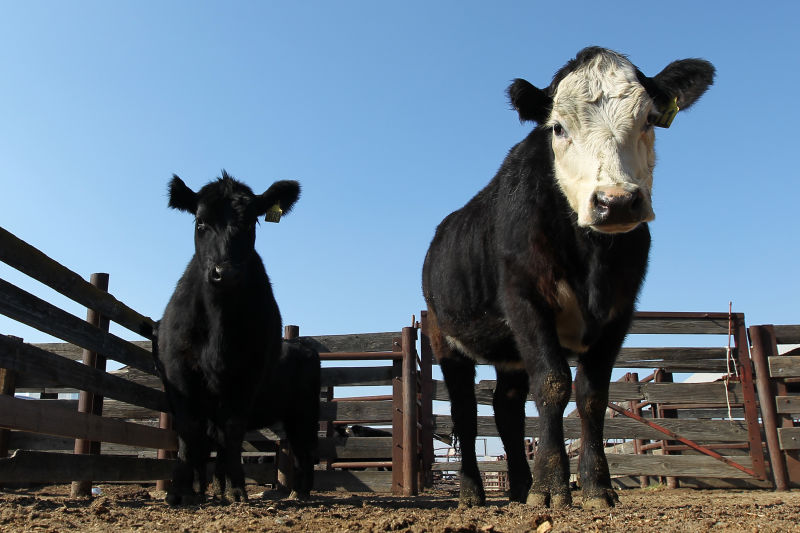The Centers for Disease Control and Prevention estimates that 2 million people get sick every year with a drug-resistant infection and 23,000 die as a result of those illnesses.
"Massive amounts of antibiotics are used on farms in the creation of meat," said Elisa Odabashian, director of Consumers Union's West Coast office, which also backs the bill.
"If they're used to treat a disease, like antibiotics are used to treat a disease in humans, for a limited time, we're fine with that,” she said.
“It's using it for growth promotion or disease prevention that creates these adaptive superbugs that makes medicines ineffective.”
Both the NRDC and Consumers Union had originally opposed the bill, labeling it too weak. It was first introduced last December.
But in the final two weeks of the session, which ended last Friday, Odabashian and Kar say that the governor’s office got involved and pushed for a tougher bill. It was only after the bill was amended to be more stringent did the NRDC and Consumers Union drop their opposition.
Brown had been pushing for a tougher livestock antibiotics bill since last year, when he vetoed SB835, a bill many advocates opposed saying it was too lax. In his veto statement, Brown said he wanted state regulators to work with legislators to find “new and effective ways to reduce the unnecessary antibiotics used for livestock and poultry.”
Sen. Jerry Hill, D-San Mateo, is the author of both last year’s bill and this one. “I worked very closely with Gov. Brown’s administration on SB27 and I’m confident the governor will sign it,” Hill said in an email. “There is no other state that has regulations as strong as those proposed by the bill. What we are able to accomplish here in California will hopefully set the trend for the rest of the country.”
The governor’s office did not return a call seeking comment in time for publication.
Industry groups have not mounted strong opposition. California’s Farm Bureau, for example, is neutral on the bill. Noelle Cremers, its director of natural resources and commodities, said that antibiotic resistance is an issue in livestock. “We have members who are not able to use antibiotics that they used to,” she said. “So we recognize the importance of being engaged in the discussion of having antibiotics available and effective into the future.”
The Farm Bureau remains neutral on the bill because of its requirement of a veterinarian’s prescription for antibiotics. California will be the first state in the country to require these prescriptions. Cremers said it will be a challenge for some livestock producers in rural areas to find a veterinarian.
“That requirement is significant and is going to be a burden to some of our members, and that’s why we couldn’t support the bill,” she said.
The governor has until early October to sign or veto the bill.
